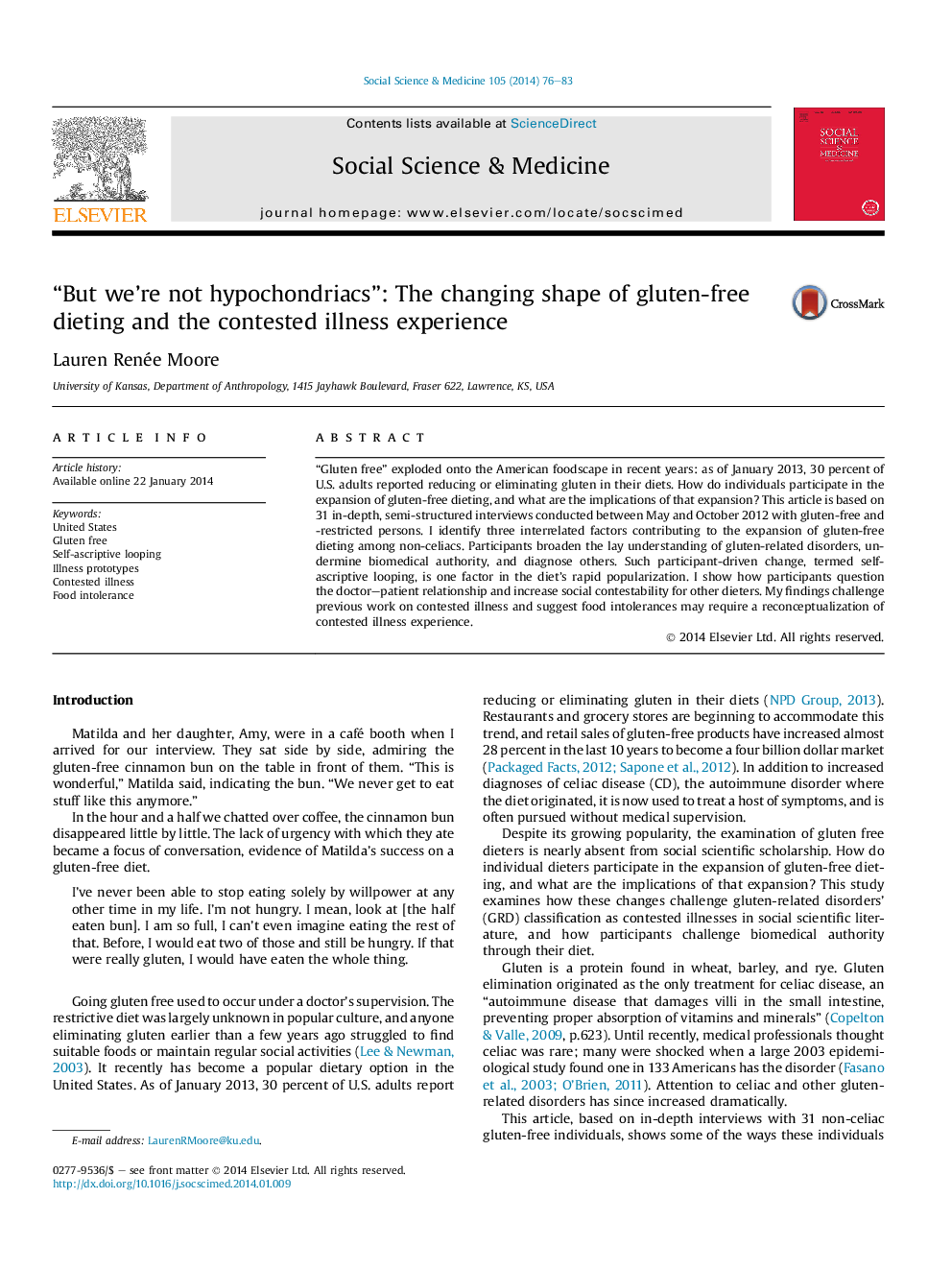| Article ID | Journal | Published Year | Pages | File Type |
|---|---|---|---|---|
| 7335625 | Social Science & Medicine | 2014 | 8 Pages |
Abstract
“Gluten free” exploded onto the American foodscape in recent years: as of January 2013, 30 percent of U.S. adults reported reducing or eliminating gluten in their diets. How do individuals participate in the expansion of gluten-free dieting, and what are the implications of that expansion? This article is based on 31 in-depth, semi-structured interviews conducted between May and October 2012 with gluten-free and -restricted persons. I identify three interrelated factors contributing to the expansion of gluten-free dieting among non-celiacs. Participants broaden the lay understanding of gluten-related disorders, undermine biomedical authority, and diagnose others. Such participant-driven change, termed self-ascriptive looping, is one factor in the diet's rapid popularization. I show how participants question the doctor-patient relationship and increase social contestability for other dieters. My findings challenge previous work on contested illness and suggest food intolerances may require a reconceptualization of contested illness experience.
Related Topics
Health Sciences
Medicine and Dentistry
Public Health and Health Policy
Authors
Lauren Renée Moore,
